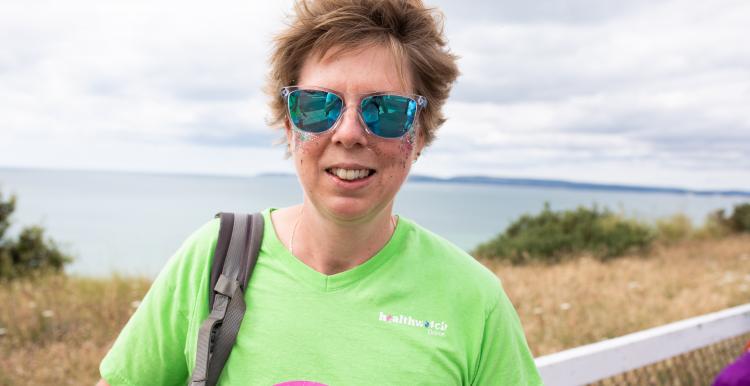Did you know that 300 million people in the world live with a rare disease? Today is their day and I am one of them.

A disease is rare when it affects fewer than 1 in 2,000 people. Examples of rare diseases include cystic fibrosis, Chron’s disease and sickle cell anaemia. 72% of rare diseases are genetics which means they can be hereditary.
Because they are rare, it can be difficult for people to get diagnosed quickly. For many rare diseases there isn’t a simple test, and Doctors need to rule out other more common illnesses first. For some conditions it is made more complex because symptoms can be similar to other conditions, or vary from patient to patient. Either way, this complexity can mean treatment is often delayed.
What's it like living with a rare disease?
People tell us that waiting for a diagnosis and then learning to live with a rare illness can be extremely stressful and often impacts peoples’ mental health and that of their families. The rarer the disease, the less support that is available from charities and support groups.
"6 years ago, I was diagnosed with a rare blood cancer called Polycythaemia Vera. I’d never heard of it. My skin started going red, almost purple at times, and I started getting really cold, blue hands and the occasional fainting episode. I thought it was stress! Like many rare diseases, there isn’t a simple test and they often need to rule out other illnesses before you get a diagnosis. This can take time. My GP just thought there was an error with my blood test. He’d never met anyone with blood results like mine!
Eventually I was referred to a haematologist at the hospital who told me I had too much blood and the treatment was to remove pints and pints of blood. They didn’t need to call my name in the waiting room – they knew it was me by the colour of my skin!
It was still a while until I got a formal diagnosis. Now I know that a fault in my JAK2 gene causes my bone marrow to make too many red blood cells. This makes my blood too thick and can struggle to travel around my body.
Now 6 years on, I have a little team who keep a close eye on me (they are awesome) and I’m in and out of hospital for regular blood tests and check ups. I inject myself with a chemo drug at home which is doing a great job at keeping everything in check."


